|
|
|
|
The confluence of song lyrics with other forms of literature has always seemed natural to me. The origins of poetry are in song. What better way to gain an appreciation for the musicality of language than in a musical setting?
Popular music has produced any number of accomplished lyricists: Chuck Berry, Bob Dylan, Joni Mitchell, Lou Reed, Gil Scott-Heron, Shane McGowan, P.J. Harvey and Kendrick Lamar, among many others. I humbly submit that the lyric to Aldous Harding’s Horizon is an elliptical masterpiece.
But does the work of these artists qualify as serious literature? Does it belong on a university course?
It is a longstanding question, in some respects. Back in the early 1960s, people were debating whether or not Dylan was a poet. Almost half a century later, he won the Nobel Prize for Literature — and, I would suggest, the argument. His work is now taught at university level. “Literature,” as the French literary critic Roland Barthes once said, “is what gets taught.”
Yet the official stamp of approval still hasn’t quite settled the matter. There remains a lingering suspicion that the work of a popular songwriter is out of place in a serious literature course.
It is no surprise that the latest pop star to attract serious academic attention is Taylor Swift, quite possibly the biggest thing in the history of big things. Swift, who slipped quietly into the country this week to play a series of low-key concerts, has garnered a formidable reputation as a lyricist. In this lively essay, Liam Semler, a professor of early modern literature, makes the case that she is not only a genuine ally of serious literature but that she deserves a place on the university curriculum alongside Shakespeare’s Sonnets.
As Semler argues, it is not a question of labelling and ranking. The contrasts and parallels that can emerge from such comparative readings have the potential to open up the study of literature in all its richness.
Next Friday we launch our Books & Ideas newsletter which will bring you the best of our in-depth book reviews, explainers and essays touching on everything from philosophy and history to politics and the culture wars. You can subscribe here.
|

|
James Ley
Deputy Books + Ideas Editor
|
|
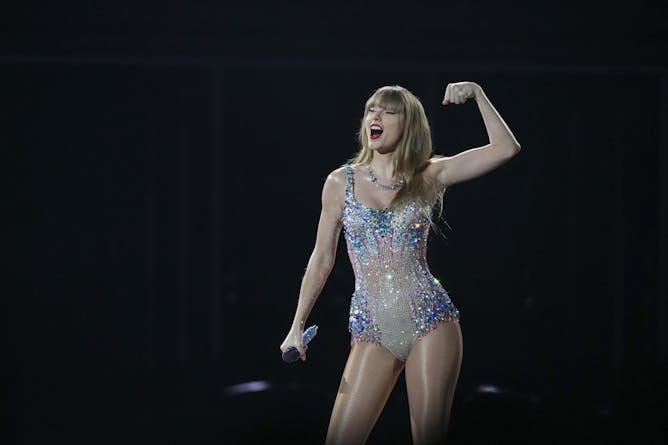
Liam E Semler, University of Sydney
There is nothing to lose and plenty to gain in teaching Swift’s Midnights and Shakespeare’s Sonnets together. There’s no dumbing-down, and no need for reductive assertions about who is “better”.
|
Best reads this week
|
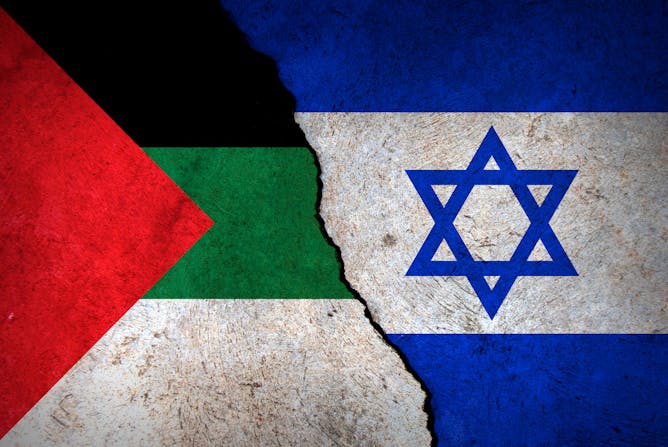
Hugh Breakey, Griffith University
A private group chat of Jewish creatives was leaked because some were organising against pro-Palestinians. Was it ethical to do so?
|
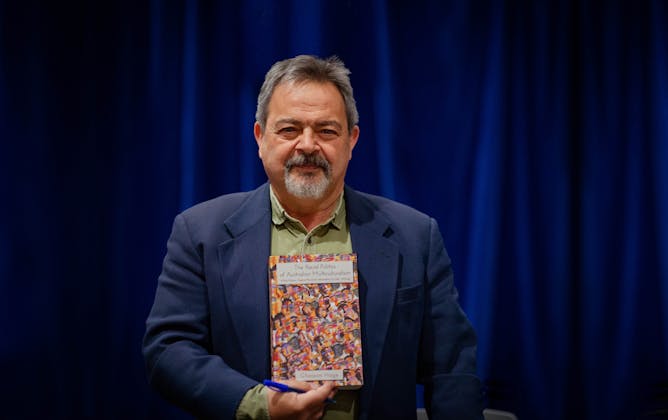
Matt Fitzpatrick, Flinders University
Ghassan Hage has been sacked by Germany’s prestigious Max Planck Foundation due to his trenchant criticism of Israel’s war. It’s just the latest in an ongoing culture war in Germany.
|
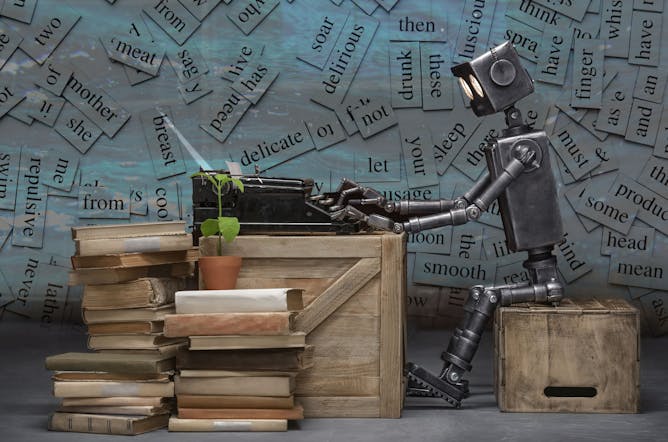
Katherine Day, The University of Melbourne; Renée Otmar, Deakin University; Rose Michael, RMIT University; Sharon Mullins, The University of Melbourne
Technically, ChatGPT can do (some of) the work of a human editor. But an experiment comparing three separate human edits of a literary short story to edits by ChatGPT exposes AI’s serious limitations.
|
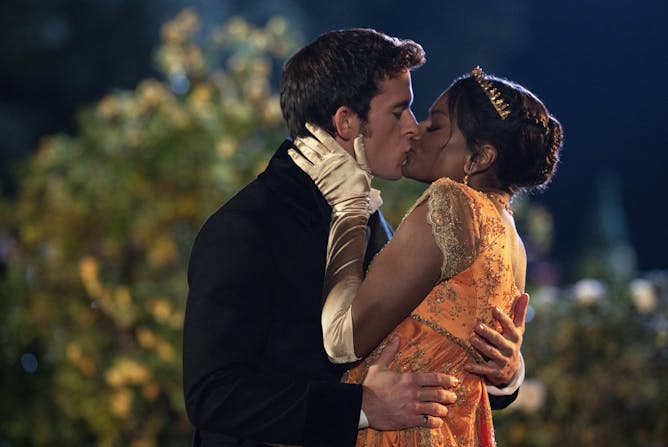
Jodi McAlister, Deakin University; Jayashree Kamble, City University of New York
Are romance novels all the same? Are their readers all bored housewives and BookTok girlies? Of course not! Romance experts Jodi McAlister and Jayashree Kamble debunk the myths and deliver the facts.
|

Ian Robertson, University of Wollongong
What is healthy self-love? Psychology experts and philosophers have long debated the question.
|
Podcasts
|
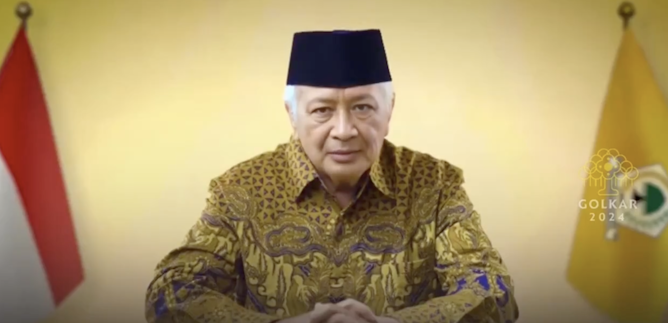
A screenshot from a deepfake video shared on X purporting to show former Indonesian President Suharto.
Erwin Aksa via X
Gemma Ware, The Conversation
Disinformation experts, Lilik Mardjianto and Nuurrianti Jalli, tell The Conversation Weekly podcast about the deepfakes that circulated ahead of the Indonesian election.
|
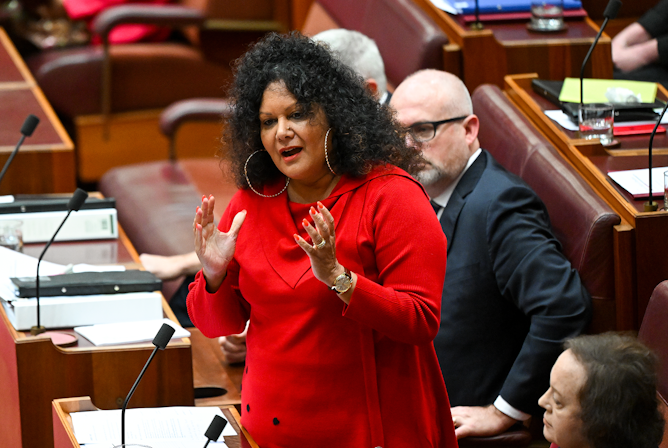
yeah.
LUKAS COCH/AAP
Michelle Grattan, University of Canberra
To discuss this week's policy announcement, the centrepiece of which is a $700 million jobs program for people in remote areas, we're joined by Northern Territory Senator Malarndirri McCarthy.
|
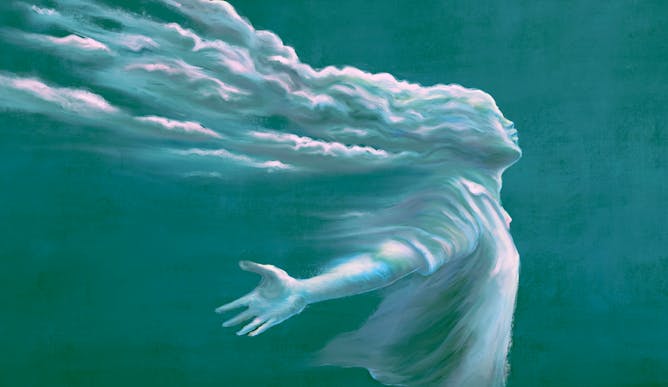
New research has opened windows of connections between the waking world and dreamers.
Jorm Sangsorn via Shutterstock
Gemma Ware, The Conversation
Dream researcher Başak Türker explains how she was able to communicate with people while they were dreaming. Listen to The Conversation Weekly podcast.
|
Our most-read article this week
|
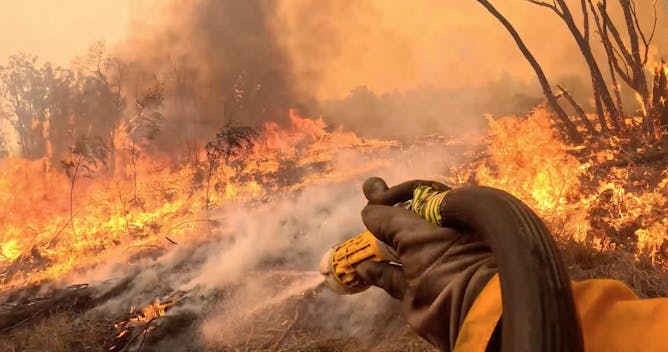
John Woinarski, Charles Darwin University; Kerstin Zander, Charles Darwin University; Stephen Garnett, Charles Darwin University
Survey respondents overwhelmingly prioritised saving a human life – even if that person had been repeatedly told to evacuate and even if, as a consequence, a snail or shrub species became extinct.
|
In case you missed this week's big stories
|
-
Roger Dargaville, Monash University
The event has prompted questions about the reliability of the state’s electricity grid. But it’s important to note these extreme winds would have seriously disrupted any power system.
-
Ian A. MacKenzie, The University of Queensland
As other nations race to restructure their economies in line with a low-carbon future, Australia risks being left behind. An economy-shaping tax on fossil fuels is a conversation we must have.
-
James Blackwell, Australian National University
The latest Closing the Gap report reveals just four of the 19 targets are on track to be achieved. It comes after years of failing to give First Nations people a say over their own lives.
-
Roger Wilkins, The University of Melbourne
Some 17,000 people told us exactly how much they drank, smoked and used illicit drugs. Here’s a unique snapshot of Australians’ vices.
-
Paul Strangio, Monash University
Arguably, the Abbott-Turnbull-Morrison era represents a nadir when it comes to the history of Australian national leadership.
-
Tim Lindsey, The University of Melbourne
As the former general settles into office, a further gradual dismantling of democratic checks and balances, institutions and individual freedoms is very likely.
-
Anya Phelan, Griffith University
Australia’s Soft Plastics Taskforce has been under pressure to fill the vacuum left by the demise of REDcycle. But this time the small trial announced for Melbourne has the potential to succeed.
-
Theo Evans, The University of Western Australia; Bruce Webber, CSIRO
It’s a horror story unfolding in the west that could sweep across the country. Beware the shot-hole borer, an exotic pest that threatens our tree crops, plantations, urban forests and wild places.
-
Sam Whiting, University of South Australia; Ben Green, Griffith University
Groovin’ the Moo is the latest in a long line of Australian music festivals to be cancelled. It is the new normal in our age of ‘deep uncertainty’.
-
Lauren Ball, The University of Queensland
Western Australia has introduced a limit on ham in school canteens. Here’s what has changed and the evidence it’s based on.
|
|
| |
|
|
|
The Conversation AU
Melbourne VIC, Australia
•
Full Time
|

|
|
The Conversation AU
Melbourne VIC, Australia
•
Full Time
|

|
|
|
|
| |
| |

|
| |
| |
| |
Featured Events, Courses & Podcasts
|
View all
|
|
1 January 2023 - 7 October 2026
•
|

|
1 February 2023 - 25 November 2029
•
|
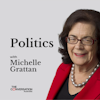
|
4 March - 13 May 2024
•
Clayton
|

|
16 February 2024
•
Sydney
|

|
|
|
|
| |
| |
| |
| |
| |
|
|
|
|
|
|
|